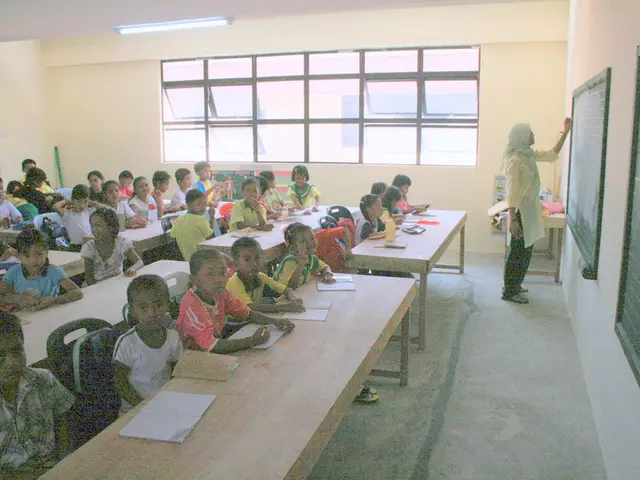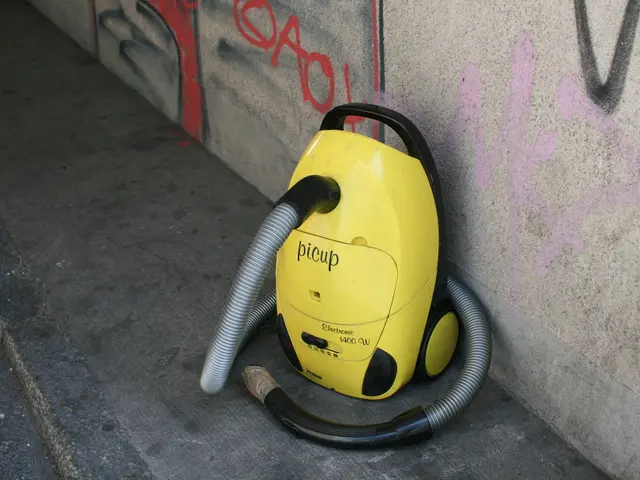Monitoring Individualized Education Program (IEP) Objectives for Pupil Progress: 8 Practical Strategies
In the realm of education, problem-solving and self-monitoring are crucial executive functioning areas that require careful attention, especially for students with executive functioning issues. These skills are essential for personal and professional success, as they enable individuals to manage their tasks, make decisions, and adapt to various situations.
To set and meet self-monitoring goals effectively, collaboration with the Individualised Education Program (IEP) team is key. This includes educators, families, and specialists who can provide insights and support tailored to the student's needs.
One practical approach is to use apps, worksheets, or even a trusted friend to set reminders for check-ins and target goals. For instance, downloading and printing the Phone-A-Friend Contact List from the Real Life Executive Functioning Workbook can be a helpful resource.
When crafting self-monitoring IEP goals, it's important to consider a student's learning styles and use the SMART framework. This ensures goals are Specific, Measurable, Achievable, Relevant, and Time-bound. For example, a goal might be: "By the end of the IEP year, during independent work time, the student will use a checklist to self-monitor task completion and initiate task breaks appropriately in 4 out of 5 opportunities per week, as measured by teacher observation and student checklist reviews."
Breaking down annual goals into short-term objectives, using age-appropriate and context-relevant examples, and providing consistent support and reinforcement are other best practices for setting effective self-monitoring goals.
Struggles with self-monitoring can manifest in various ways, such as a lack of improvement, difficulty in adjusting behavior, inability to see problems from others' perspectives, and resistance to criticism or feedback. It's crucial to reflect often on progress and adjust goals as needed.
Self-monitoring can have a profound impact on a student's academic performance and behaviour. Improved self-monitoring can increase on-task behaviour, reduce disruptive behaviours, and improve prosocial behaviours. For instance, an adaptive goal could be identifying at least one instructional and one behavioural goal in 4 out of 5 opportunities.
IEP goals for self-monitoring may include adaptive, social, reading, math, and writing goals. Encouraging self-monitoring in all aspects of a child's life, such as creating a savings plan, can further reinforce these skills.
When setting and addressing IEP goals for self-monitoring, patience and a focus on one small goal at a time are essential. Resources like the EF IEP Goal Resource Hub, other skill-specific IEP goal articles, and the Real Life Executive Functioning Assessment can provide valuable insights and ideas.
Lastly, remember that self-monitoring is a skill that refers to understanding one's own actions and adjusting them for future improvements. Tools like the Plan B exercise in the Real Life Executive Functioning Workbook can help students come up with backup plans when faced with challenges.
By implementing these best practices, we can empower students with executive functioning issues to develop self-monitoring skills systematically and measurably, enabling clearer progress tracking and targeted interventions.
- To enhance personal growth and success, it's beneficial to incorporate goal setting, time management, and problem-solving within education-and-self-development activities.
- Collaborating with the Individualised Education Program (IEP) team is essential for setting achievable and relevant self-monitoring goals, which are crucial life skills for both personal and professional development.
- To foster learning and adaptability, using resources like apps, workbooks, or peers can aid in setting reminders for check-ins and target goals, ultimately helping individuals improve their self-monitoring abilities.





